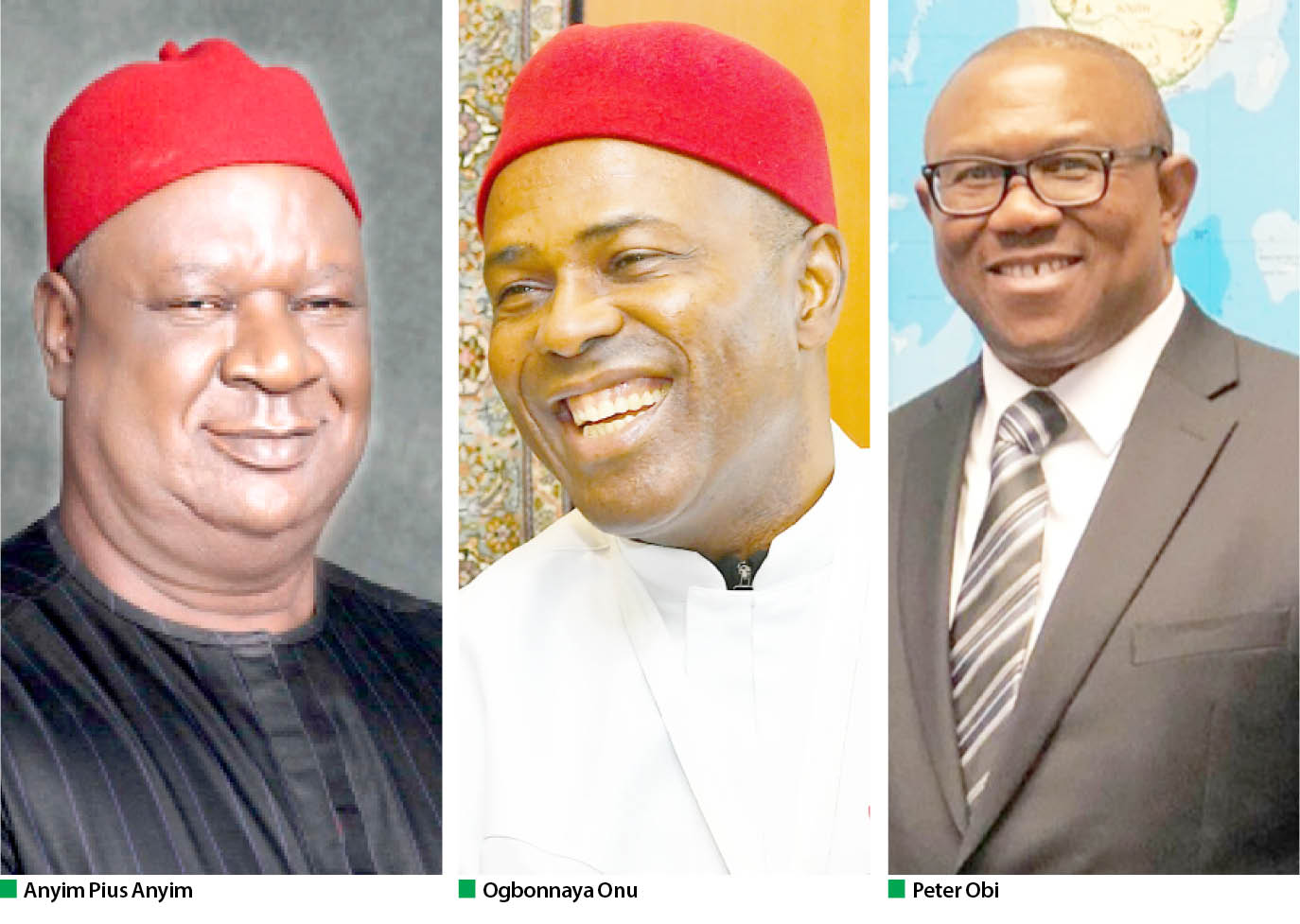The first notable gap about the South East presidency project is its definition or lack of it. Is the project about Igbo of South East geopolitical region comprising the five Igbo speaking states of Anambra, Imo, Abia, Enugu and Ebonyi only? Or Igbo in the South South region of Rivers and Delta states are also eligible to apply?
When it comes to this very question, you will find Igbo canvassers of the Igbo presidency project engaged in mumbo jumbo of definitions. They will say that the Igbos are not limited just to the five aforementioned states but spread as far afield as Kogi, Benue, Cross River and Akwa Ibom states in addition to Rivers and Delta. But again incongruously the same persons will tell you that the Igbo presidency project is limited only to the five Igbo states of the South East geopolitical zone! How contradictory can this be?
What this means is that an Ikwerre man from Rivers State or Ika and Anioma man from Delta cannot hope to be considered for the Igbo presidency project because by definition he is not ‘core’ Igbo. This much happened when General Leo Irabor was appointed as Chief of Defence Staff. There was considerable animus by persons from the ‘’core’’ Igbo states that no Igbo general was considered for the job. But when it was pointed out the General Irabor, who comes from the Ika area of Delta which Igbos from the ‘’core’’ Igbo area like to include in the wider Igbo configuration could also be considered as Igbo, the argument was that he was not ‘’Igbo’’ enough. How can the Igbos seek inclusion in Nigeria when they are engaging in acts of exclusion even within the Igbo family?
I cite this to buttress the fact often said, with justification, that the greatest impediments to the Igbo presidency comes from the Igbos themselves. A case in point occurred at the just concluded presidential convention of the Peoples Democratic Party (PDP) in which Atiku Abubakar emerged the winner. Before the convention, the talk was that PDP should reserve the slot for Igbo aspirants from the South East states. But at the convention, the Igbo delegates totalling over a hundred from the five Igbo-speaking states could only volunteer 14 votes to the strongest Igbo aspirant, Anyim Pius Anyim. So how possible can the Igbo presidential project come to fruition when even the Igbos themselves do not show strong resolve and commitment to invest in it?
Just as the Igbos do not show a strong commitment to actualise the Igbo presidential project beyond rhetoric, they have also demonstrated to the rest of Nigeria conflicting signals about what they really want in the Nigerian project.
There is a huge body of opinion in Igboland today that believe that the answer to the Igbo question in Nigeria is not to have a president of Igbo extraction, but to exit the country totally. And to this school of thought, for a number of reasons ranging from; perceived deliberate Igbo exclusion from the levers of power and appointments, to the suffocation of Igbo, ingenuity and industry, Igbos need to find their own space outside Nigeria in order to better achieve their talent.
Another Igbo view favours the restructuring of Nigeria into regional autonomous units so that the Igbo states can take charge of their own resources and responsibilities without an overbearing central government that stifles the progress and development of component units.
To the rest of Nigeria whom this is addressed, the question that is most often asked is what really do the Igbo want? How can they want the presidency when they themselves do not show a commitment to its actualisation by practical deeds? How can the Igbo expect other Nigerians to vote an Igbo man as president when a large body of opinion in Igboland favours the exit of Igbo from Nigeria?
Unfortunately, the tenor of debate around these questions in the public space is mostly characterised by name calling, deliberate obfuscation and, in many cases, outright falsehood and misrepresentation of facts and figures by mostly Igbo commentators.
And this is not helped by the victimhood complex that the Igbo adopt about the whole issue. In this regard, recourse to victimhood conveniently enables the Igbo to stand as a persecuted people within the Nigerian system for which only a slew of special concessions by the Nigerian state can assuage. It also serves as a cover to justify acts of blatant disobedience and criminal assault on institutions of the Nigerian state and to others in the Nigerian system.
This is what differentiates the Igbo presidential project from the presidential projects of other regional groups. The tenor of the others was for the most part in form of a nuanced, constructive engagement based on dialogue to engineer positive political outcomes. That of the Igbo on the other hand is based on diktats, fiat, threats and a lack of willingness to discuss and engage the significant others in the Nigeria project constructively for the desired outcome.
Essentially on its own merit, the Igbo presidential project is a germane issue which should be taken seriously by our political establishment in order to demonstrate and engender a sense of inclusiveness in the Nigerian system for all Nigerians. In resolving it, we could find a template that would help us situate the principle of inclusive interaction among our diverse ethnic and regional groups in our constitution and body of laws.
As one of the major ethnic groups in the country and by exclusion and the ultimate many accounts its most ingenious and industrious, the Igbo have a duty and responsibility befitting their highly regarded status as achievers to pursue the Igbo presidency project as a national project for inclusion and integration and not for disintegration of the Nigerian state of which they are an integral part and which do nobody including themselves no good. (Concluded)

 Join Daily Trust WhatsApp Community For Quick Access To News and Happenings Around You.
Join Daily Trust WhatsApp Community For Quick Access To News and Happenings Around You.


